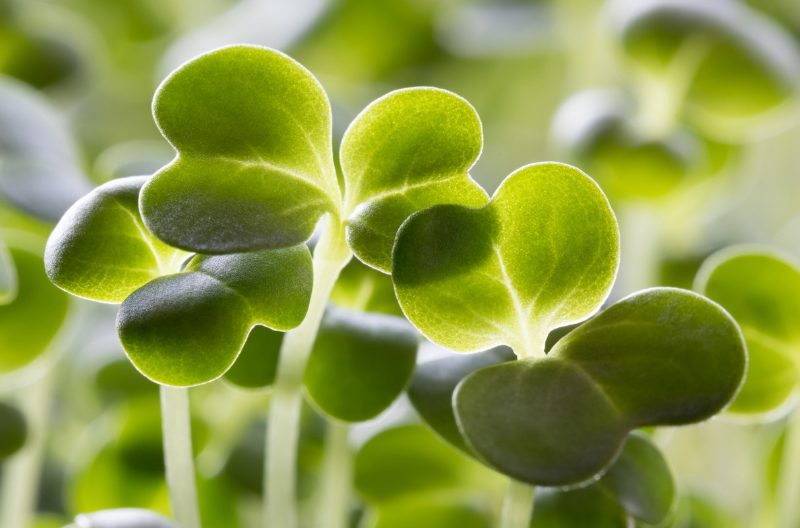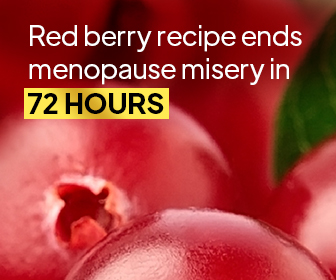You might already know that green leafy vegetables are vital to your health, but broccoli sprouts just might blow the competition out of the water! These stringy greens resemble alfalfa sprouts and are known for their health benefits, especially their cancer-fighting properties. So what is the deal with this superfood and how can you consume more of them?
Broccoli sprouts contain sulforaphane, which helps protect your cells from cancer-causing mutations and even prevent tumors.[1] We’ll explore more about sulforaphane later, along with more nutritional facts about this wonder food. We’ll even give you tips on how to grow broccoli sprouts at home!
What are Broccoli Sprouts?
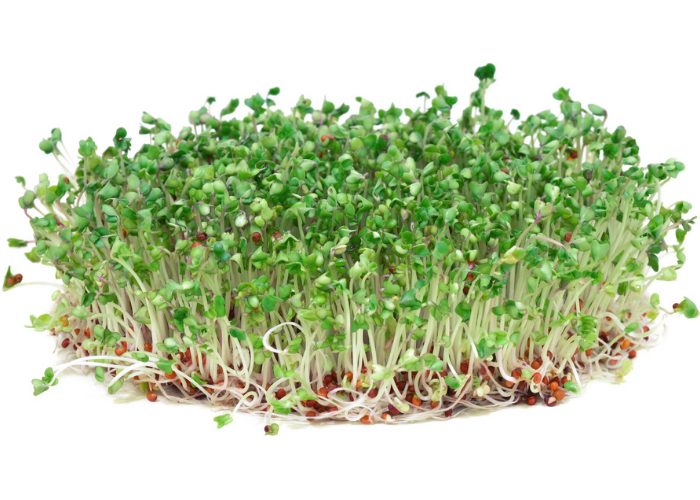
Well, broccoli sprouts can be thought of as baby broccolis. They are four or five-day-old broccoli plants that can grow solely from seeds and water without pots and soil. Strangely, they taste closer to radishes than broccoli. So if you’re not a fan of the tree-like adult veggies, don’t shy away from these baby sprouts just yet. They have a fresh, earthy taste and are crazily nutritious too! They’re sure to win over your heart and stomach.
To better explain what broccoli sprouts are, let’s take a look at what they are not. Broccoli sprouts are not:
- Soybean/Alfalfa/Radish/Clover sprouts. Broccoli sprouts might look nearly identical to some other types of sprouts, but remember they are not the same. Broccoli sprouts have a whitish stem and usually one or two tiny green leaves just at the tip. They might also have a brownish bulb from where the sprout grew from the seed.
- Broccolini. Broccolini is similar to broccoli but with longer stems and smaller bushels. They are delicious sauteed with soy sauce, and even have some cancer-fighting elements too![2] But their impact isn’t as widely researched as broccoli sprouts just yet.
- Broccoli rabe. Broccoli rabe, also known as “rapini”, is a vegetable in the same family as broccoli but are larger and leafier. It can be tender when cooked with a more bitter taste and earthy undertone.
- Broccoli. Even though broccoli sprouts are the same plant as broccoli, they have different nutritional benefits than adult broccoli. Keep reading to learn more about this comparison.
Broccoli vs Broccoli Sprouts
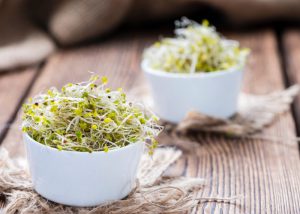
Again, broccoli sprouts are not the same as broccoli. But what exactly sets the two stages of the plant apart so drastically? Let’s take a look.
Broccoli sprouts contain 10 to 100 times more components of sulforaphane (an anti-cancer superhero!) than the mature plant.[3] Basically, you can get a lot more cancer-fighting nutrients from a small amount of broccoli sprouts than you can from eating a large amount of mature broccoli.[4]
In terms of vitamins, broccoli sprouts are rich in vitamin K, with about 38 micrograms per serving. But note that broccoli sprouts fall shorter in vitamins A and C. Sprouts contain about half as much vitamin A, and a third of the amount of vitamin C compared to mature broccoli.
Both veggies certainly have powerful health benefits. But if you’re looking to amp up your anti-cancer diet, broccoli sprouts are definitely the better choice. For maximum effect, combine the two in your meals! A few more greens on your colorful plate never hurt.
Tip: Broccoli sprouts are a beautiful and edible garnish. Try adding broccoli sprouts on top of your soups or in the center of your raw vegetable plate. They’ll add some texture and flavor to make an Instagram-worthy meal.
Broccoli Sprouts Benefits & Nutrition Facts You Need to Know
By now, you probably get the idea that broccoli sprouts are healthy and filled with nutritional goodness. But just how much good can they do for your health? Let’s find out what makes them a superfood to watch out for.
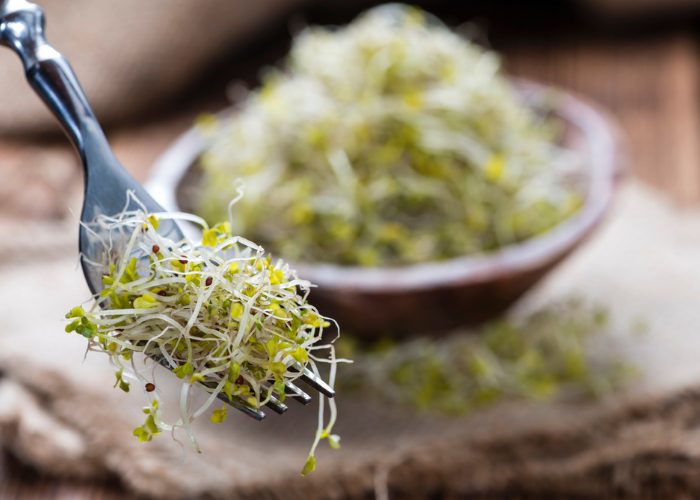
1. Cancer killer
You know broccoli sprouts are healthy when even the family of vegetables they come from are known to be cancer-fighting all-stars. The cruciferous family is the group of super greens like broccoli, kale, cauliflower, arugula, and brussels sprouts. This group has a positive (or rather, killer) effect on cancer formation.[5]
2. Anti-inflammatory
Broccoli sprouts are anti-inflammatory to the max. The key player that’s responsible for reducing inflammation is sulforaphane. It’s actually proven to inhibit inflammasomes in mice with gastric cancer.[6] This is a great start to further research, as many cancers go hand in hand with inflammation problems.[7] Additionally, these sprouts are even a recognized supplement for Type-2 diabetes treatment because of their combined anti-inflammatory and antioxidant impact.[8]’[9]
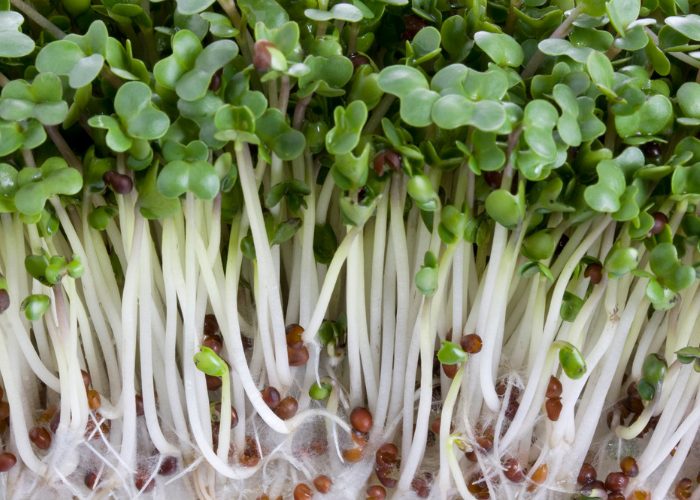
3. High in antioxidants
These sprouts are a good source of natural antioxidants.[10] Antioxidants do a number of beneficial things for your internal and external body, one of which is taming free-radicals (which are basically cancer-associated molecules).[11] Additionally, sulforaphane acts as an antioxidant by reducing the harmful effects of UV rays, keeping your skin healthy and free from age spots.[12]
4. Can be eaten raw
This yummy and crunchy topping is most effective when eaten raw. This is because heat can destroy the cancer-fighting properties that are flourishing in the raw sprouts. But to some, eating raw sprouts might raise some health concerns. To understand this more, let’s move on to a common question about broccoli sprouts.
Are Raw Broccoli Sprouts Safe?
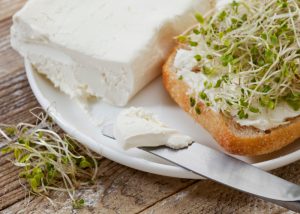
In short, yes, raw broccoli sprouts are safe to eat. However, there is a reason to be cautious around eating commercial sprouts. There were a few different foodborne pathogen outbreaks (such as e.coli) from various sprouts in the past.[13] Foodborne outbreaks from sprouts either stem from preharvest or postharvest causes. Preharvest causes include contaminated soil or water. Postharvest causes are from contact with contaminated transportation or storage of the sprouts.[14]
Still, these facts shouldn’t be a deterrent in eating broccoli sprouts. Actually, one study even proved that sprouts require more exposure time to become contaminated with bacteria than leaves, such as lettuce.[15] Sprouts needed around one hour to become contaminated, while leaves needed just a few minutes. Therefore, you shouldn’t worry too much about sprouts being dangerous just as any store produce has similar risks.
The Role Sulforaphane Plays in Making it a Cancer-Preventing Vegetable
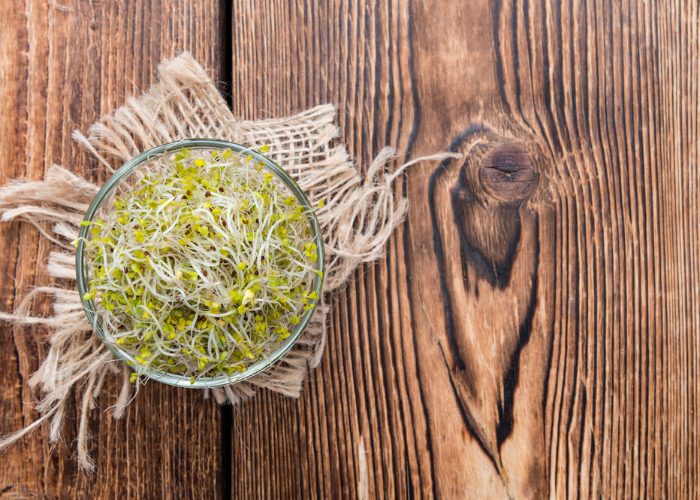
The American Cancer Society reports that one-third of all people in the U.S. will get cancer in their lifetime.[16] It’s safe to say we could all use a bit more anti-cancer support in our bodies. That’s where sulforaphane can help.
Sulforaphane is a compound found in cruciferous veggies that is known to prevent cancer formation. Actually, the compound itself is not directly found in raw sprouts, but glucoraphanin is. Glucoraphanin gets converted into sulforaphane in your body, and about 80 percent of it is absorbed by you.[17]
But how does sulforaphane get all the glory for being anti-cancer? Well, it battles different types of cancers by modifying or regulating important cell mechanisms.[18] Basically, it can protect your healthy cells and help them fight against any malfunctioning cells. It also watches over cell interactions in your body to make sure everything is going smoothly. Lastly, it prevents DNA damage.[19]
Here are a few examples of cancer prevention that research links to sulforaphane.
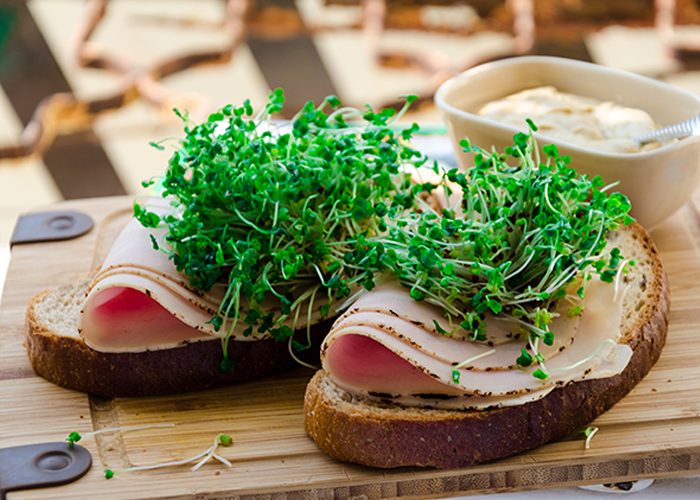
Breast Cancer
One study showed that the sulforaphane in broccoli sprouts prevents the formation of breast cancer stem cells.[20] The same study showed that pre-existing tumors were reduced after injections of sulforaphane were given to mice.
Prostate Cancer
Prostate cancer patients can benefit from a diet high in broccoli sprouts too. Sulforaphane battles prostate cancer by decreasing the cancer-cell receptors in the prostate.[21] This allows healthy cells to build up and cancer cells to decrease.
Colon Cancer
There’s not quite enough evidence to directly correlate colon cancer prevention in humans to sulforaphane. However, a study that used rats showed that tumor growth was blocked by sulforaphane.[22] This opens the door to further studies in oncology.
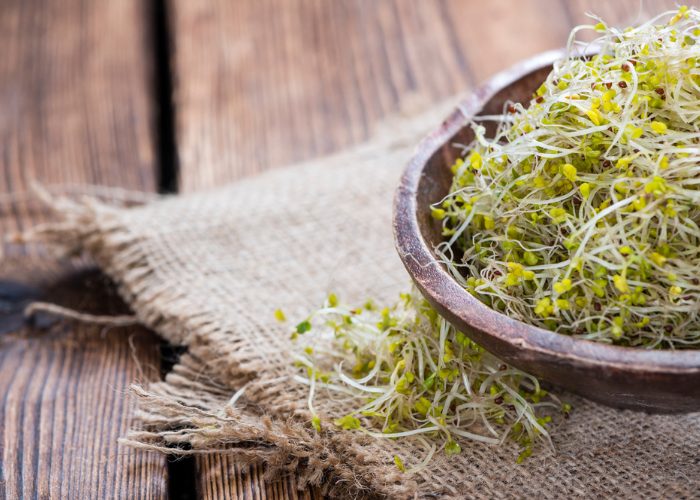
Thyroid Cancer
Thyroid cancer is the fifth most common type of cancer for women. Luckily, sulforaphane plays a role in tumor prevention and growth blockage in this type too.[23] Cancer cells are so pesky because they multiply rapidly in your body. But sulforaphane actually reduces the speed at which the cancer cells reproduce, slowing down any potential damage.[24]
Bladder Cancer
Research has shown that even broccoli sprout extract has cancer preventative properties. Scientists conducted a test on rats with bladder tumors to determine the effect of broccoli sprout extract on bladder cancer. They found that broccoli sprout extract inhibited the growth and progression of bladder cancer.[25] Additionally, the extract stimulated important enzymes that protect against oxidants and carcinogens. While more research is required, this study shows broccoli sprout extract has promising potential in preventing bladder cancer progression, as well as its cancer-protective abilities.
Should I Eat Broccoli Sprout Extract or Raw Sprouts?
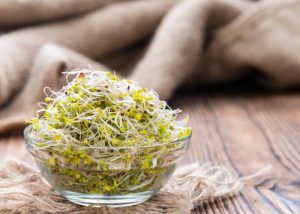
As noted above, in addition to the raw sprouts, you can get these cancer-fighting health benefits from broccoli sprout extract too. One study showed that extract from three-day-old broccoli sprouts effectively reduced the rate of occurrence and growth of mammary tumors in rats.[26] However, while broccoli sprout extract is just concentrated doses of the real thing, it doesn’t have enough research to prove it has an equal impact.
So keep in mind that the real deal, aka fresh sprouts, have a higher dosage of sulforaphane than a supplement. Another study tested a broccoli sprout powder supplement in comparison to raw sprouts. It showed that while the supplement contained the cancer-fighting components of sprouts, it had much smaller amounts than eating them in their natural form.[27]
Fun Fact: While kids tend to shy away from broccoli because of its green color and potentially off-putting taste, adults develop a palate for the vegetable. However, not all adults do. Did you know that President George Bush did not like broccoli?[28]
How to Grow Broccoli Sprouts at Home
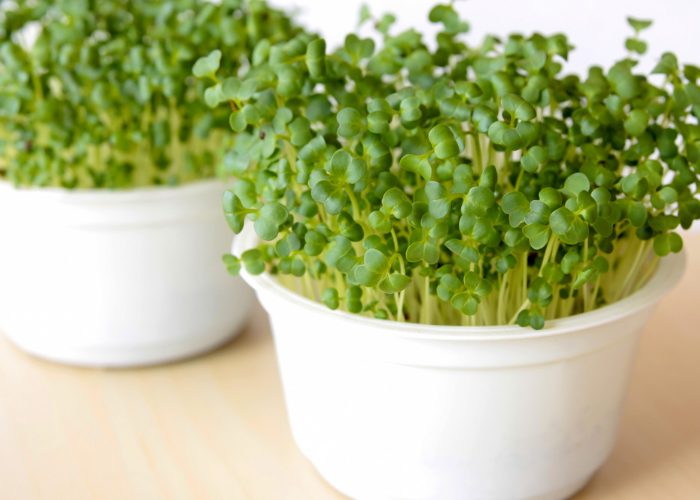
Broccoli sprouts are easily one of the best cancer-fighting superfoods.[29] But buying them in packages from the store can get expensive. On the other hand, a package of broccoli sprout seeds can be nearly 20 times cheaper for the same serving if you grow these sprouts at home.
So, to have all the benefits of broccoli sprouts whenever you want, try growing them yourself. But how do you grow broccoli sprouts? The good news is that you don’t have to have a green thumb, a garden, or even potted plants to have these sprouts at your fingertips. All you need is a mason jar and some broccoli sprout seeds. It only takes a few steps too!
Prep Time: 5 minutes | Make Time: 1 week | Yield: approximately 16 oz of loosely packed broccoli sprouts
Tools/Equipment: 16 oz mason jar, cheesecloth, 2 tablespoons of broccoli sprout seeds, water, and a rubber band
Tip: The jar or bag of seeds you buy at the market will likely have way more than two tablespoons of seeds, but you can store the leftovers in an airtight container and save them for the next batch!
Directions
- Boil some water to sterilize your mason jar before use.
- Rinse your seeds thoroughly to eliminate any possible bacteria present.
- Add two tablespoons of broccoli sprout seeds to the mason jar and cover them with water (the amount of water doesn’t matter as long as the seeds are covered).
- Store in a dark and warm place overnight.
- After 8 hours, drain the old water from the jar and rinse the seeds with fresh water.
- Then, replace the mason jar lid with
a cheesecloth and seal with a rubber band. Turn the jar upside down, so that all the excess water can drip away through the cloth while the seeds stay inside the jar. - Repeat steps 5 and 6 (rinse and drain method) three to four times a day with the same cheesecloth until you start to see green leaves forming from the seeds. This should take about one week.
- Once the leaves appear, store the jar
in your refrigerator until you’re ready to eat them. They will stay freshin your refrigerator for about one week.
Tip: You can enjoy your broccoli sprouts with a fresh green salad or just toss them into a healthy smoothie. Simple!
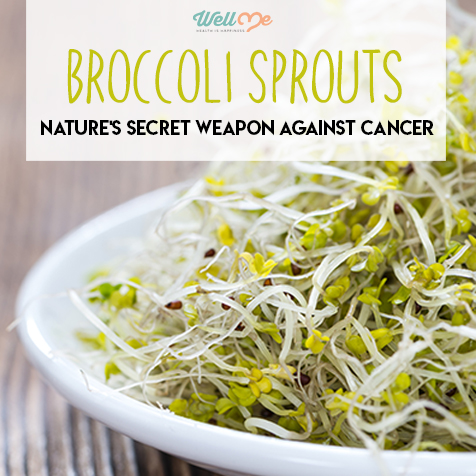
Conclusion
There you have it — broccoli sprouts might just be worth all the hype! Whether you toss them in a salad, sprinkle them on a cold cucumber soup, or simply snack on them straight out of the jar, they’re a fabulous addition to your diet. Find them in most grocery stores, your local farmer’s market, or grow them all by yourself by referring to the “How to Grow Broccoli Sprouts At Home” section above. You’re sure to enjoy eating them, all the while soaking up all of the nutritional benefits they have to offer.
References
- [1] https://www.sciencedirect.com/science/article/pii/S0304383508003285
- [2] https://onlinelibrary.wiley.com/doi/full/10.1002/sca.20278
- [3] https://www.pnas.org/content/94/19/10367.short
- [4] https://www.pnas.org/content/94/19/10367.short
- [5] https://www.tandfonline.com/doi/abs/10.1080/01635581.2001.9680607
- [6] https://www.ncbi.nlm.nih.gov/pmc/articles/PMC4673482/
- [7] https://onlinelibrary.wiley.com/doi/abs/10.1111/j.1600-065X.2012.01099.x
- [8] https://www.ncbi.nlm.nih.gov/pubmed/23631497
- [9] https://www.tandfonline.com/doi/abs/10.3109/09637486.2012.665043
- [10] https://pubs.acs.org/doi/abs/10.1021/jf504929m
- [11] https://foh.psc.gov/NYCU/antioxidents.asp
- [12 https://www.sciencemag.org/news/2007/10/broccoli-your-skin?r3f_986=https://www.google.com/
- [13] https://onlinelibrary.wiley.com/doi/full/10.1111/1541-4337.12010
- [14] https://onlinelibrary.wiley.com/doi/full/10.1111/1541-4337.12010
- [15] https://www.ncbi.nlm.nih.gov/pmc/articles/PMC4265075/
- [16] https://www.cancer.org/cancer/cancer-basics/questions-people-ask-about-cancer.html
- [17] https://www.ncbi.nlm.nih.gov/pmc/articles/PMC4432495/
- [18] https://www.ncbi.nlm.nih.gov/pmc/articles/PMC4432495/
- [19] https://www.ncbi.nlm.nih.gov/pmc/articles/PMC4432495/
- [20] http://clincancerres.aacrjournals.org/content/early/2010/04/09/1078-0432.CCR-09-2937.abstract
- [21] https://www.spandidos-publications.com/ijo/49/4/1609
- [22]http://cancerres.aacrjournals.org/content/60/5/1426.short
- [23] https://www.ncbi.nlm.nih.gov/pmc/articles/PMC4694875/
- [24] https://www.ncbi.nlm.nih.gov/pmc/articles/PMC4694875/
- [25] http://cancerres.aacrjournals.org/content/68/5/1593.short
- [26] https://www.pnas.org/content/94/19/10367.short
- [27] https://www.ncbi.nlm.nih.gov/pmc/articles/PMC3183106/
- [28] https://www.pnas.org/content/94/21/11149
- [29] https://www.sciencedirect.com/science/article/pii/S0304383508003285

